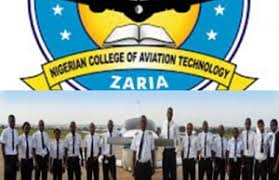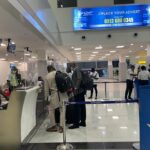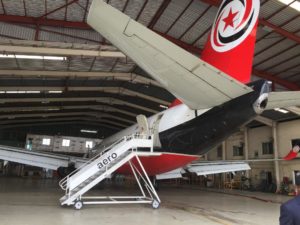
The aviation industry makes huge forex demand and contributes significantly in pressuring the Naira, from aircraft insurance, foreign airlines revenue, aircraft maintenance, and importation of equipment.
Every aviator will readily tell you that most aviation activities are denominated in foreign currency; that apart from manpower, aviation fuel, catering, overhead costs and related services, which are paid in the local currency, other expenses are done in foreign currency.
Many stakeholders argue that the Nigerian government over the years has lackadaisical disposition towards radically changing the status quo by localising most of these aviation activities. For example, the Nigerian government could build major maintenance facility directly or using private investors. It could expand the Nigerian College of Aviation Technology (NCAT), Zaria to offer commercial pilot licence (CPL) in addition to commercial private pilot licence (PPL) by acquiring more equipment and aircraft. It has started offering type rating to pilots on particular aircraft types, Boeing 737 but it can acquire simulator for Embraer and Airbus to capture those students who travel overseas for further training.
THISDAY gathered that when most Nigerians finish their training at NCAT and obtained PPL certificate they travel overseas to obtain their commercial license and also type rate on particular aircraft types before returning to the country or staying abroad to seek for jobs.
Take Ethiopia for example, everything about pilot training is done in Ethiopia. Ethiopia Airlines training school has full bouquet. Ironically, it was established at the same time with NCAT but the facility has been so expanded that it encapsulates all kinds of pilot training to type rating and also cabin crew training, engineering, avionics at advanced level.
From training as commercial pilot, the Nigerian students start demanding dollars to pay for training overseas. When they later get engaged, they still travel overseas for simulator (recurrent) training, thus making further demand for the green back. But these trainings can be domesticated. Earlier this year, the Rector of NCAT, Captain Modibbo Alkali Mahmud told journalists that with the newly acquired Boeing 737 aircraft, the school would start recurrent training for pilots. That would save foreign exchange for Nigeria.
MRO
Maintenance, Repair and Overhaul (MRO) is capital intensive investment, which is highly rewarding. Nigeria does not have major MRO facility but recently Aero Contactors maintenance facility and 7 Star facility have emerged, in addition to the one at Execujet, Lagos that caters for private jets. But a major maintenance facility that can undertake comprehensive maintenance, repair and overhaul of aircraft is yet to be established. It is projected that Nigerian airlines, including scheduled, private and cargo operators spend about $1.5 billion annually on aircraft maintenance overseas.
The Base Manager of Fixed Wing and Head of Aircraft Maintenance Organisation (AMO) in Aero Contractors, James Ominyi told THISDAY recently that local maintenance of aircraft up to the level of C-check would save Nigerian airlines huge amount of money in foreign exchange.
Ominyi said there are many costs associated with ferrying the aircraft overseas for maintenance, which include over flight permit, depending on which country the airline is going to.
“You need to seek the over flight permit of the country. And then, depending on the distance you have to pay for fuel. But I know it will not be less than $50, 000. You also will have to pay for landing and fueling, which is called technical stop,” he said.
Ominyi explained that generally MROs could charge $600, 000 for C-check, depending on the scope of work, but noted that at the end of the day the airline may end up paying up to a one million dollars or more because there could be findings that would be beyond what was captured in the agreement in the C-Check and then the airline would have to pay for it.
“When they open the engine and they open the side wall panels they may see cracks that are beyond what is agreed on, which they have to rectify and this will be at extra cost. By carrying out C-checks in Nigeria, Aero would be saving Nigerian airlines millions of dollars every year and reduce pressure on the Naira, as every expenses outside fueling and salaries is done in foreign exchange and that is dollars,” he said.
The Managing Director/ CEO of 7 Star Global Hangar Nigeria Limited, Isaac Balami told THISDAY, “Establishment of MRO in Nigeria will be relevant to our quest for indigenous capacity building only if it will be operated by local personnel, both in terms of operation and maintenance of equipment on the one hand, and technical manpower to operate the MRO itself on the other hand. In other words, local personnel will have to be trained to fit the various assignments under the MRO. If that happens, then Nigeria will be in for good times with the coming of such MRO, particularly in respect to the highly required human capacity building. Establishment of an MRO will also aid Nigeria’s quest for technology transfer.”
Aircraft Insurance
It is a well known fact that because of the huge cost involved, Nigerian insurance companies cannot undertake the coverage of aircraft insurance, maritime and oil and gas insurance. So these sectors insure their equipment overseas. Insurance premium takes away about $2 billion annually, according to insurance experts.
Nigeria’s insurance premium on aircraft is recognised as the highest in West Africa and every aircraft parked at the ramp of any airport is guarded by security operatives at the expense of the airlines and this is added to the cost of operation and also cost of leasing, especially wet leased aircraft.
Speaking on the development, immediate past CEO of Aero Contractors and former Managing Director of the Nigeria Airspace Management Agency (NAMA), Captain Ado Sanusi, said insurance premium and cost of leasing are determined by country risk; the higher the country risk, the highest of the premium and cost of leasing.
He said that country risk is the aggregation of many factors, which include credit rating of the country, strength of the financial institutions, the strength of the aviation industry regulatory agency, which is the Nigerian Civil Aviation Authority (NCAA), past history of repatriation of aircraft and the ability of foreign commercial airlines to repatriate their revenue earned from ticket sales.
Industry analysts regret that most of these transactions are done in foreign currency. Insurance sector has also frowned at the fact that due to high premium, Nigerian airlines now undertake monthly insurance of their aircraft instead of doing so annually because the financial requirement for the premium is very high.
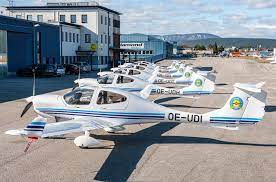
Blocked Funds
THISDAY confirmed from the International Air Transport Association (IATA) on Wednesday that by end of March, 2022 Nigeria owed foreign airlines $282 million. This is known as blocked funds because Nigeria has been unable to allow foreign carriers to remit the funds to their countries. This latest amount accrued after the Central Bank of Nigeria (CBN) allowed airlines to remit their revenues last year. These funds are from ticket sales revenues, which Nigeria was unable to remit to the airlines due to paucity of foreign exchange.
The Managing Director of Finchglow Travels and also the Chairman, Association of Approved Training Organisations, Nigeria, Bankole Bernard revealed that the CBN recently helped the airlines to repatriate their revenues, but it has started piling up again.
“Foreign airlines funds have started piling up again. CBN helped to remit their revenue recently and that encouraged them to continue to open up seats and sell more but it has started piling up. Because you know that we are very low on our reserve. So government will now have to prioritise the little foreign exchange that they have to be able to satisfy the needs of everybody. But be that as it may, I believe that it has not gotten to an alarming stage, like it was before. So I think it is something that will still be able to work with and ensure that this industry stays safe.
However, he noted that the amount of blocked funds would continue to increase because the Naira continues to depreciate in value daily.
“The increase is inevitable in the sense that the naira keeps depreciating against the major currencies like dollar. And you and I know that as at today even Jet A1 (aviation fuel) is being imported. So rather than us producing it locally we are importing what we should have been producing. So that automatically puts the cost of the product high. And who are the users and consumers of this Jet A1? They are actually airlines.
“Now, unfortunately, for the international carriers, Jet A1 still appears to be cheaper here in Nigeria than everywhere else around the world. So the foreign airlines would rather prefer buy the product here because the price is competitive, it is better for them as it were. But for the local carriers, that will have to adjust their prices, their fares in naira, it is a bit difficult. This is why government is subsidizing petrol (premium motor spirit) because they know it is a major ingredient that can trigger economy downtown. So they have to be careful in the approach to petrol and that is why they subsidize it, ”Bernard said.
Government Intervention
Industry stakeholders have suggested at different fora that the federal government can use policies to enable Nigerian airlines share in the huge funds that are repatriated annually from Nigeria and one way of doing this is to allow each foreign airline to land at one international airport in the country and partner with local carriers to distribute passengers to other destinations in a code-share arrangement.
A senior executive of one of the airlines told THISDAY that Nigeria has one of the strongest air passenger destinations in the world. Nigeria has high load factor made up of 99 per cent Nigerians. Nigeria is one of the most profitable routes in the world with one of the highest yields, but this market is dominated by international carriers that generate revenues and repatriate them to their countries.
“If you want to grow your airlines, you have to let them exploit their domestic market. You cannibalise domestic market when you give multiple destinations to foreign airlines,” the top airline official said.
Another way of cutting down the high forex demand in the aviation sector is to ensure that major aircraft maintenance is conducted locally for most of the aircraft types. 7 Star Global Hangar Nigeria Limited Chief Executive, Balami said there is no doubt that establishing an MRO in Nigeria would have a major positive impact on the balance sheet of indigenous airlines.
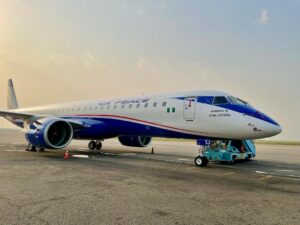
“Aside from savings from the hitherto high cost of foreign exchange, it is expected that the cost of mandatory maintenance will be significantly reduced due to lower cost of labour than in the western countries. Government’s present policy of free import duty for aircraft – related equipment and parts when applied to MRO – related equipment is a big incentive for investment in such ventures. It is advisable for government to also extend tax holidays for such ventures considering the huge capital outlay required vis-à-vis the expected long incubation period associated with such ventures,” he said.
It is worthy of note that the federal government promised, under the Buhari administration, that it would establish major MRO in the country. But there is hope because Akwa Ibom before end of this year may unveil its major maintenance hangar located in Uyo, capital of Akwa Ibom state.
With that and other aforementioned training facilities, Nigeria could save foreign exchange of over $1.5 billion annually.
THISDAY


